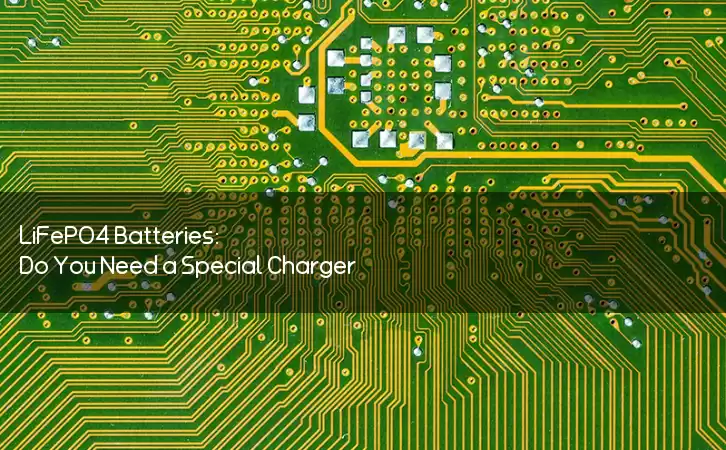Information Center
LiFePO4 Batteries: Do You Need a Special Charger?
Published:2023-08-14 10:32:43 Author:Green WCND Views:25LiFePO4 batteries have been gaining popularity over the past few years as an alternative to traditional lead-acid batteries. They are known for their safety, reliability, and long lifespan. However, many people are unsure whether LiFePO4 batteries require a special charger or if they can use the same charger as lead-acid batteries. In this article, we will explore this question and provide some insights into the charging requirements for LiFePO4 batteries.

Firstly, it is important to understand that LiFePO4 batteries are different from lead-acid batteries in several ways. Unlike lead-acid batteries, LiFePO4 batteries have a higher nominal voltage (3.2V compared to 2V), which means that they require a different charging algorithm. Additionally, LiFePO4 batteries have a lower internal resistance and higher charging efficiency, which means that they can be charged at a higher rate without overheating or damaging the battery.

So, do LiFePO4 batteries require a special charger? The short answer is yes, they do. While it is technically possible to charge a LiFePO4 battery using a lead-acid charger, there is a risk of overcharging and damaging the battery. This is because lead-acid chargers are designed to charge batteries with a lower voltage, and they use a different charging algorithm. Using a lead-acid charger on a LiFePO4 battery can result in overcharging, which can cause the battery to overheat and even explode, posing a serious safety risk.
So, what kind of charger do you need for LiFePO4 batteries? Ideally, you should use a charger that is specifically designed for LiFePO4 batteries. These chargers have a built-in charging algorithm that is optimized for LiFePO4 batteries and ensures that the battery is charged safely and efficiently. Additionally, they have various safety features, such as overcharge protection, short-circuit protection, and reverse-polarity protection, which help to prevent damage to the battery and ensure that it lasts as long as possible.
It is worth noting that LiFePO4 batteries are not very forgiving when it comes to charging errors. If you overcharge or undercharge a LiFePO4 battery, it can cause permanent damage and significantly reduce its lifespan. This is another reason why it is important to use a charger that is specifically designed for LiFePO4 batteries and to follow the manufacturer’s recommended charging procedures.
In conclusion, LiFePO4 batteries require a special charger that is specifically designed for their unique charging requirements. While it may be possible to use a lead-acid charger, doing so poses a significant safety risk and can damage the battery. If you are considering using LiFePO4 batteries, it is important to invest in a high-quality charger that is designed to work with these batteries to ensure safety, longevity, and reliability.
Battery testers of different voltages exhibit significant differences in several aspects, and a 12V battery tester is primarily used for testing a range of spec···
Battery Testers (battery capacity testers/battery detectors) indeed come in various types tailored for different products. These different types of battery test···
The advantages and disadvantages of battery testers are as follows:AdvantagesFlexibility:Battery testers can accommodate various testing modes, making them adap···
Understanding the testing accuracy of golf cart battery testers is crucial for ensuring the precision of test results. Here are some methods to assess the testi···





